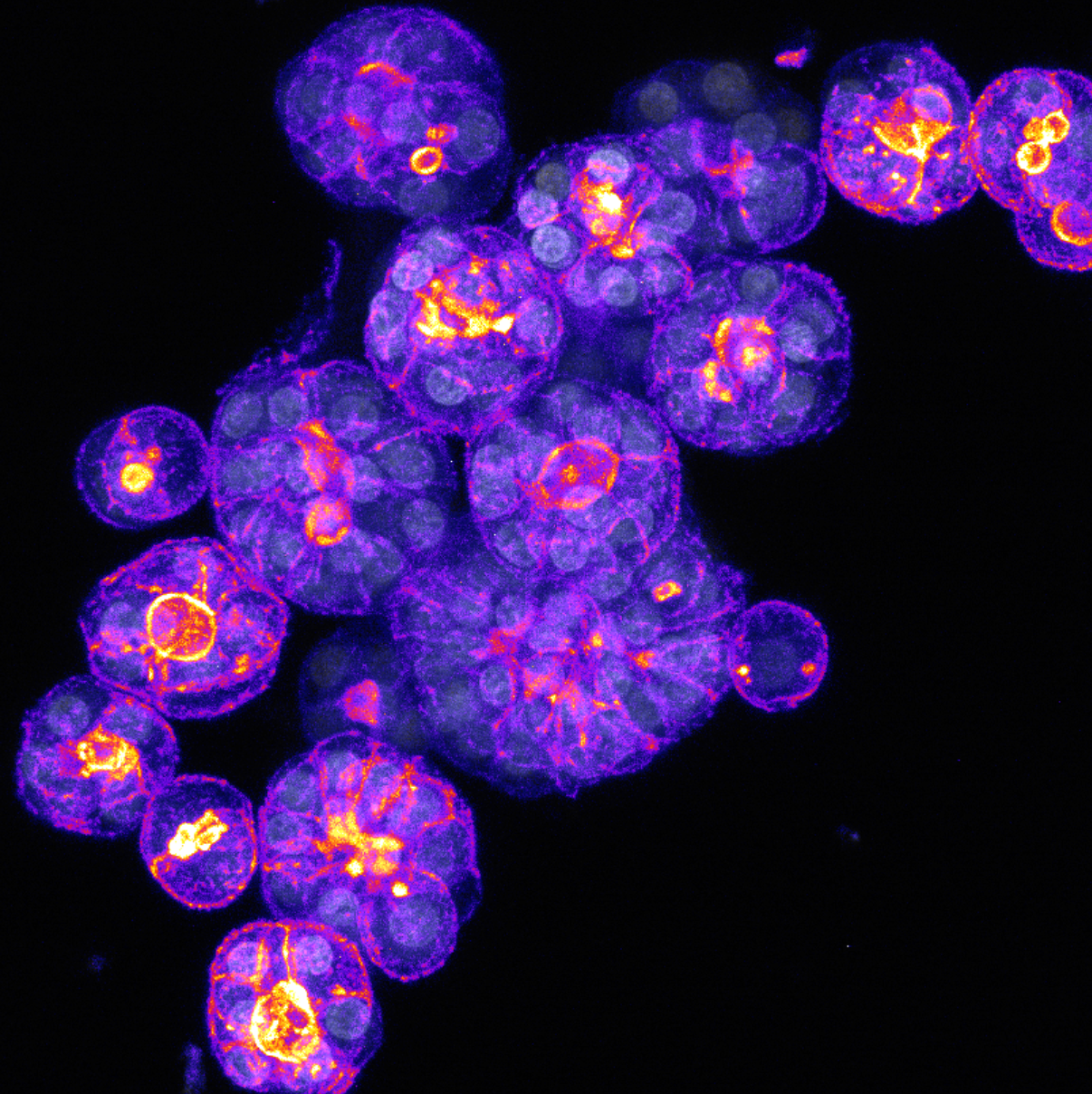Fatty liver disease is a condition that causes a build-up of excess fat cells in the liver. The disease can be caused by many factors, mainly metabolic factors and obesity, and it is a risk factor for liver cancer. At the moment roughly 30% of the worldwide population has a type of fatty liver disease. The number of people affected is currently rising at an alarming rate, with incidence even increasing in young children. It is to be expected that the number of liver cancer cases in adults and young adults will go up as a result. Hendriks: ‘The lack of human relevant research models has hampered our understanding of the biology of fatty liver disease in people. Therefore, it is unclear what exactly causes increased susceptibility to and how best to treat liver cancer arising from the disease.’
3D mini liver organoids
With her grant, Hendriks will work together with research group leaders in the Máxima Center, Dr. Benedetta Artegiani and Dr. Ruben van Boxtel, as well as Dr. Maria Rodriguez Colman at UMC Utrecht and Dr. Jos Brouwers at Avans to look into how fatty liver disease changes the liver. They will use human liver organoids, which function as 3D mini livers and mimic the shape and function of an actual liver. The researchers will model fatty liver disease in the organoids in order to study how the condition affects the liver cells. Hendriks says: ’We are eager to discover signs of cellular transformation and to then start to understand the underlying biological mechanisms of how fatty liver disease can result in liver cancer.’
The researchers will use gene editing technique CRISPR/Cas, to introduce DNA-changes that simulate the early stages of liver cancer. This permits them to study how mutations can result in metabolic changes in the liver cells, and how these alterations can result in the development of cancer. Eventually, this could potentially lead to discovery of novel biomarkers or drug therapies.
KWF has awarded 10.9 million to 17 new cancer research projects. All projects focus on fundamental questions within oncology: how does cancer arise, how does cancer grow, how does cancer spread and on what processes can we intervene? All 17 studies, 8 of which were funded from the proceeds of Alpe d'HuZes, will start this year.

A culture of growing human liver organoids
Credits: Delilah Hendriks and Benedetta Artegiani, Hubrecht Institute and Princess Máxima Center

